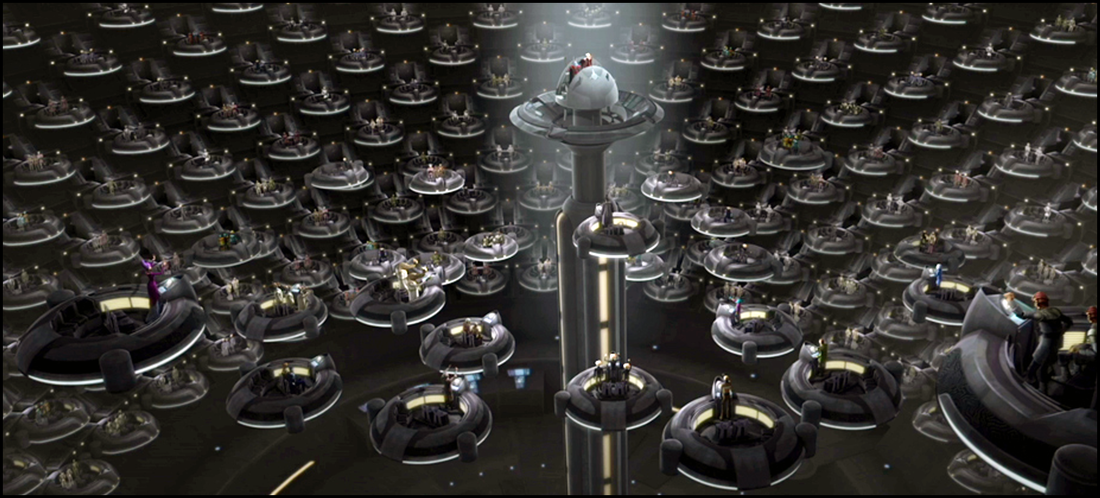As a member of a variety of Science Fiction and Fantasy related Facebook groups, I'm well aware of how often modern politics drives a wedge between various factions of the membership. The discussion of particular issues does have the tendency of putting individuals up on their respective soap boxes; and, yes, I too have probably waded from time-to-time into waters far too deep for my own safety. I think that's natural -- as humans -- to want to sound off on matters of importance; while I personally believe there's nothing wrong with giving people a bit off rope to wander around the issues, I equally comprehend that some folks just can't help but hang themselves with the same rope.
For what it's worth, Science Fiction and Politics have always been topics difficult to separate; and this is largely because so much of good SciFi -- not 'hard SciFi,' per se -- involves subjects tied directly to a political philosophy.
In fact, many in academia will insist that Science Fiction got its start in the 1800's specifically when a group of forward-thinking writers started penning scripts, stories, and manuscripts aboard what their ideal society would resemble. This 'Utopian' movement certainly set a trend which many scribes wanted to sound off on -- much like today's Facebook corners -- and, as a result, there were competing theories about the best way to move mankind from its dark days to brighter climates. As you can imagine, these various platforms only led to more and more discussion -- as well as more and more stories -- and the movement gave audiences some of the best literature of its day precisely because those telling stories were insistent upon creating their particular visions of tomorrow.
Secondly, some of Science Fiction and Fantasy's very greatest works were penned with specific political ideas in mind. Can you imagine trying to distance the works of, say, Kurt Vonnegut from his political leanings? Or how about Robert A. Heinlein? George Orwell? Margaret Atwood? Or even the ground-breaking H.G. Wells? How do you discuss any dystopian novel, series, or movie and ignore the politics? I've argue that you can't -- at least, you can't discuss it fully -- and even making a cursory attempt demonstrates the follow of trying to limit or restrict free speech. Like Jeff Goldblum's character in Jurassic Park warned, nature finds a way ... and eventually much of SciFi's themes do as well.
Lastly, I'd point my finger toward the vast space operas or galactic sagas that have experienced some highs and lows in popularity over the years. Amazon.com's The Expanse requires a healthy understanding of its own mythological interstellar politics in order to appreciate exactly what and where and how everything is occurring; and audiences could easily suggest that even George Lucas' Prequel Trilogy dabbles very openly in the ideas of what unifies various worlds under ideas of a Republic and an Empire. While these may not be discussions that take place as centrally as the simpler themes of good vs. evil, they're still there ... and all one must do is take a gander at Amazon's listing of the many SciFi franchies that have been used by any number of authors to explore the politics of fiction. There are quite a few.
So -- as I said above -- I don't want to wade into any controversy here, but Science Fiction and Politics have been joined at the hip since its inception. Denying folks the opportunity to examine it? Well, that's exactly what the baddies in SciFi and Fantasy have been trying to do since the start!
As always, thanks for reading ... and live long and prosper!
-- EZ


 RSS Feed
RSS Feed